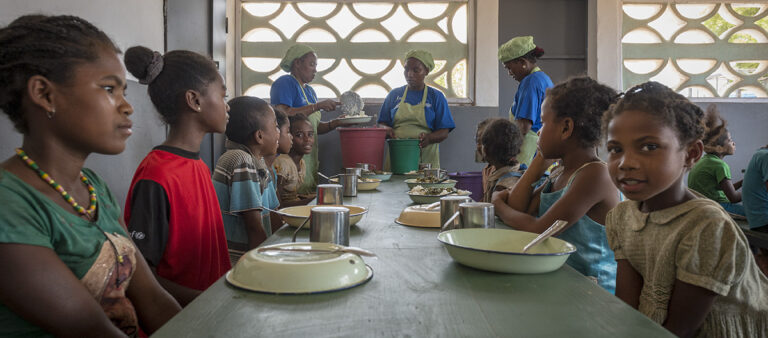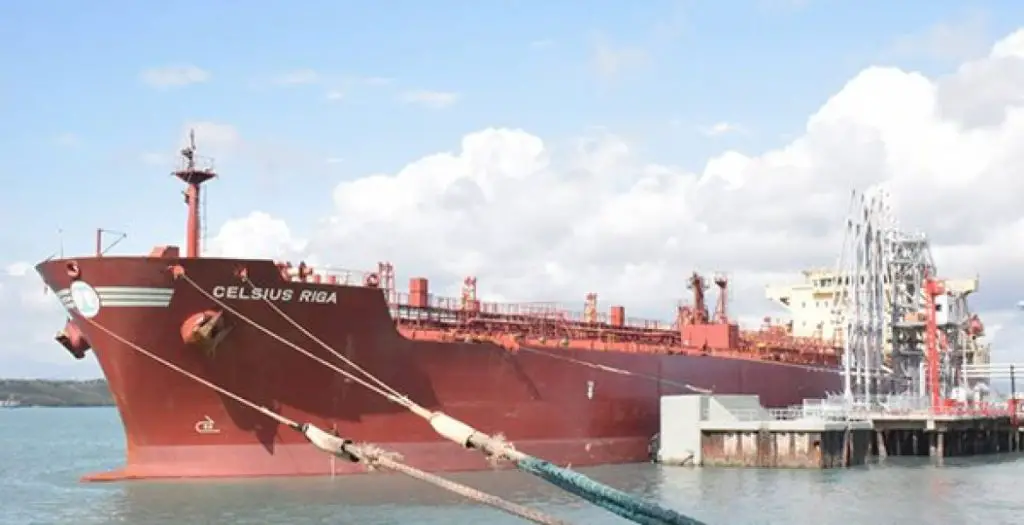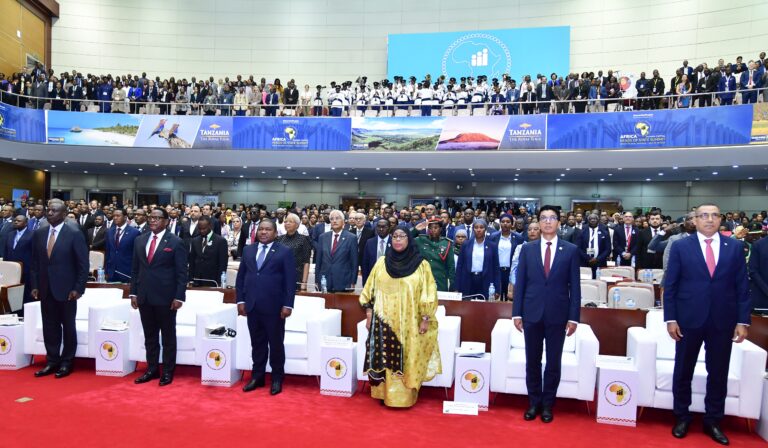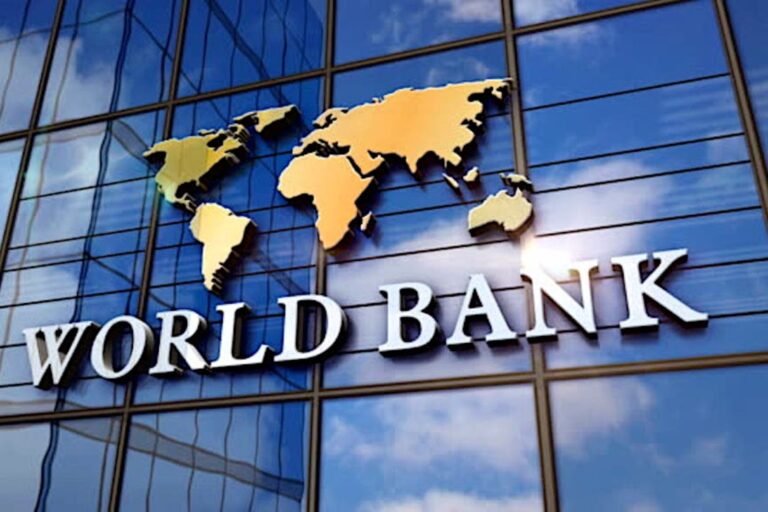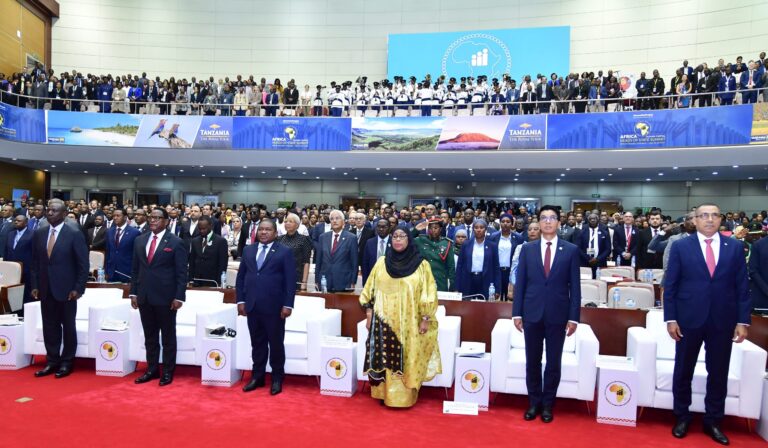- The promise and challenges of Green Hydrogen in North Africa
- Power giant Wärtsilä shares roadmap for East Africa’s energy future
- Sahel region evolves into “ground zero” for the world’s most brutal terrorist activities
- The silent struggle: Women entrepreneurs in Africa and the financial divide
- Questions and answers on confirmation of war crime charges against Joseph Kony at the ICC
- The critical need for energy access in Africa: A roadmap to prosperity
- Killings, abductions, cruel laws worsen East Africa’s human rights record
- Will the Kampala Declaration deliver for African farmers amid climate change?
Browsing: World Bank
- ECOWAS member states fed 22.4 million school-going children in 2022, up from 20 million learners in 2020.
- This represents 42% of the 53 million school children in Sub-Saharan Africa who were fed through school feeding programs last year.
- School feeding intervention, as it happens in Rwanda, can immensely boost agriculture, education, health and nutrition, and social protection sectors.
The past two years have seen West African countries grapple with a number of crises driven by conflict, climate shocks, and a slow recovery from COVID-19 economic fallout worsened by the ongoing Russia-Ukraine war.
The Economic Community of West African States (ECOWAS) member States are, however, defying these tough economic times, emerging as having fed the largest number of school-aged children in Africa.
According to The 2022 State of School Feeding Worldwide report, Ecowas member states fed 22.4 million school-going children in 2022. This was an increase from 20 million children fed
Nairobi will continue purchasing fuel on credit from three state-owned Gulf oil marketers until December 2024 in a plan the government is banking on to ease piling pressure on Kenya’s forex reserves.
The move comes in the wake of high expenditure on oil imports even as Kenya remains a net importer grappling with a widening trade deficit that hit $10.8 billion last year. Last year, Kenya’s expenditure on imports rose by 17.5 per cent to $16.9 billion (KSh2.5 trillion), despite growing export volumes.…
The African Continental Free Trade Area (AfCFTA) is now widely touted as the African Union’s (AU) most audacious project. The framework ties together the most significant number of member countries of any trade agreement since the World Trade Organisation (WTO) in 1995.
The AfCFTA had become topical even before its formal launch. Members of the business community eagerly awaited the full implementation of the AfCFTA. But two years since its formal launch, how far has the AfCFTA ushered in the ‘new era’ of African integration it promised?…
- Tanzania hosts World Bank Group Human Capital Project (HCP)
- President Samia announces national efforts to increase youth employment
- Africa suffers the lowest learning poverty in the world
It is now three years since the World Bank Group launched the Human Capital Project (HCP) in 2018, and Tanzania is making the best of the initiative.
Let’s first look at the World Bank Group’s intentions under the Human Capital Project (HCP) and then see how Tanzania intends to lead the rest of Africa in the implementation of the project. The HCP is a global effort to “accelerate more and better investments in people for greater equity and economic growth.”
The HCP is an initiative by the World Bank to help countries increase employment and employability of their workforce.
Since its launch in 2018, the initiative now has some 87 members. On July 25, Tanzania hosted the launch of the Africa Heads of …
- The World Bank plans to ease lending terms to increase liquidity.
- Increased disposal income will help reduce global poverty.
- Countries required to highlight financial inclusivity plans.
The World Bank is “taking bold new steps to increase its lending capacity”, a move that will likely trigger various implications for individuals, businesses, and economies across Africa.
In July, US Treasury Secretary Janet Yellen urged further reform of the World Bank and other multilateral development banks. Yellen said capital increases will be an option once these institutions make changes to increase their capacity to assist nations in addressing climate change and other issues.
At the same time, the World Bank President Ajay Banga stated, “We are moving quickly. While we are constructing a better bank, a larger bank will eventually be required.”
Increased lending by the world’s biggest lender will mean increased liquidity all around the world. What this means is that you …
- The central role of human capital in development is fast catching up with the developing world.
- Tanzania President Suluhu Hassan says there is no right time to deliberate on the human capital issue than now.
- President Ruto of Kenya says Africa must deliberately to make it possible for the youth to access job opportunities.
The vital role of Africa’s human capital is indispensable. It is a powerful tool in driving the growth of economic investments in the continent of 1.3 billion people. Africa has a combined GDP of nearly $3.1 trillion and over 40 percent of the population is under the age of 15 years and younger. It is therefore important that Africa’s human capital is aligned optimally to foster growth.
The central role of human capital in development is fast catching up with the developing world. It is in light of this that the just ended Africa Human Capital …
- Kenya is among countries that are heavily indebted with the loan stock at staggering 67.3 per cent of GDP.
- Total debt stood at $67.7 billion (Ksh9.6 trillion) as of April, Central Bank of Kenya data shows.
- This comprised $35.9 billion external debt and $24.6 billion borrowed from the domestic market.
President William Ruto is calling for “urgent” redesigning of global financial institutions to ensure fairness in financing of economies, as he continues to lash out at the West over debt traps in poor states.
In what seems to be a swing at the International Monetary Fund and the World Bank, Dr Ruto is pointing to a post-colonial Africa where development has stalled due to limited resources to liberate economies.
Lenders placing debt traps in poor States
This is from what Dr Ruto terms institutions that were extractive by design; only placing debt traps in poor states. Over the years, Kenya’s …
- President William Ruto of Kenya says resources should neither be controlled by the World Bank nor the International Monetary Fund.
- Africa does not want anything for free. But needs a new financial model where power is not in the hands of the few, says Dr Ruto.
- In Paris, President Ruto says the world cannot continue normally when things are not going forward.
Kenya’s President William Ruto has has called for a new world financing model to tackle poverty and negative effects of climate change. Dr Ruto is advocating for a financial architecture made up of equals. This is his latest call as he continues to emerge as Africa’s most vocal leader since his election in August last year.
According to the leader of East Africa’s top economy, President Ruto said resources should neither be controlled by the World Bank nor the International Monetary Fund. “Africa does not want anything for …
- The Kenyan shilling has fallen to a new low of 140.04 against the US dollar.
- Central Bank of Kenya data shows the unit is also losing to other major currencies including British Pound and Euro.
- Last year, the Kenyan shilling depreciated by about 7.5 per cent against the US dollar, the UAE dirham (7.5%), Saudi Riyal (7.4%) and the Chinese Yuan (3.1%), the Kenya Economic Survey 2023 shows.
As developing market currencies continue to suffer from the worldwide increase in interest rates, which is being spearheaded by the US Federal Reserve, the Kenyan Shilling has dropped to a historic low in relation to the US Dollar.
The Fed has increased the benchmark rate ten times in a row, or a total of five percentage points, since March of last year. In the last 40 years, these increases are the most abrupt. In an effort to combat US inflation, interest rates
The United Nations (UN) has called for major reforms for two institutions considered key players in the new world order. Antonio Guterres, the UN secretary-general, is pushing for major changes in the IMF and the World Bank.
According to Guterres, the International Monetary Fund has profited the rich nations at the expense of the developing ones. The UN secretary-general describes the response by IMF and the World Bank towards the COVID-19 pandemic as a “glaring failure” that left most developing nations significantly indebted.…




